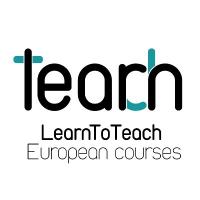
Sustainability: Social eco-literacy, think global & act local (Palamós, Barcelona - Spain)
Sustainable development as term, has been around for a while but in 1987 at the United Nations World Commission on Environment and Development, the report “Our Common Future” included one of the most widely recognized definitions of sustainable development: “Sustainable development (…) meets the needs of the present without compromising the ability of future generations to meet their own needs”.
Description
"Think globally, act locally" urges people to consider our planet and to act locally at a community level. Caring for habitats and organisms close to local communities was already taken care of by organised groups even before governments began enforcing environmental laws.
Apart from corporations acknowledging the importance of environmental issues, education systems were also interested. Government officials and school boards across the world are developing new ways of teaching. Globalisation is now thought of as an important concept to understand the world but at the same time it has led to the loss of traditional knowledge and practices, the homogenization of cultures, and the degradation of the natural environment. Eco-literacy can help us understand the impact of globalisation on our cultural heritage and the need to preserve and protect it. The importance of this issue is enhanced by a lot of schools as it is applied to ages as young as 5 years old. It is students who are our future, therefore understanding the concept of "think globally, act locally" is fundamental to our future. To achieve sustainability and eco-literacy the new generations need to be taught and shown how to use the resources available and, at the same time, care for the future.
Trainers will be in contact with the participants in order to solve any questions or doubts and provide advice on accommodation, airports, airlines etc. They will also familiarise participants with the website of the seminars (https://www.learntoteacheu.org/107-ecoliteracy-palamos-barcelona) which will be used to upload pedagogical material created during the course duration.
- Course fee: 510 euros per person. It includes the course fee, entry tickets where needed, and transportation within the working days of the course. Airport transport and accommodation are not included. Please, take into consideration that sending institutions should have insurance coverage for their participants as stated in the Erasmus+ Qu
Learning objectives
The main objective of this course is to sensitise students/citizens about how ecosystems work and how to use them in order to create a sustainable present and future. By realising the cause-and-effect relationship existing between humans and the environment, we can easily arrive to the conclusion that nature depends on us and we depend on nature. Thus, we aim to demonstrate how people involved in ecoliteracy manage this concept and how we can all give a hand to this effort.
Furthermore, we aim to facilitate our participants in their quest for networking and collaborating with other participants and institutions. Following the original objectives of Erasmus+, we take very seriously the exchange of ideas, experiences and methodologies. Thus, our day to day programme, includes theory, discussion, cultural activities and practice.
Methodology & assessment
Participants are asked to create a simple activity (teaching or other) and upload in on our working platform. In this way, produced material can be shared among the group and thus, enrich their pedagogical activities obtained.
To ensure optimum enjoyment of the course, we communicate the next day's briefing and we create a group communication tool in order to avoid changes or unexpected situations. Our goal is to enhance the exprerience and to construct relationships among the participants and our trainers that can lead to future partnerships and collaborations.
Certification details
We take our participants' personal development seriously and consequently, we offer a Certificate of Attendance that is in line with the specifications of Erasmus Quality Standards for Mobilities. The Certificate states the number of hours of the course (30), the place and date of the course and the participant's name. Our participants usually need to produce a simple activity/product which will be uploaded in our working platform. Upon the completion of this task, the participants can receive the certificate.
We also certify and sign the Mobility Agreement, Quality Commitment and Europass Mobility or any other document our participants wish to obtain in order to comply with Erasmus+ and/or their personal development.
Below, you can consult the planned program of the course:
Pricing, packages and other information
-
Price:510Euro
Additional information
-
Language:English
-
Target audience ISCED:Primary education (ISCED 1)Upper secondary education (ISCED 3)Other
-
Target audience type:TeacherNot-for-profit / NGO staffOther
-
Learning time:25 hours or more
Upcoming sessions
Past sessions
More courses by this organiser

Inclusive games and sports for outdoor & beach (Larna - Cyprus)

Sustainability: without water there is no future (Barcelona - Spain)


